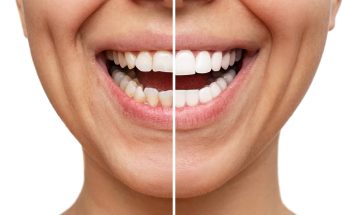You know that feeling when you’ve got a stubborn knot in your shoulder that just won’t quit? The one that makes you wince every time you reach for something on a high shelf, or keeps you tossing and turning at night? Maybe you’ve tried everything – hot showers, massage guns, but that tight spot is still there, mocking your efforts.
If this sounds familiar, you’re definitely not alone. Whether you’re a weekend warrior pushing through your latest fitness goal, a desk worker battling the aftermath of poor posture, or someone dealing with chronic pain that’s been hanging around way too long, that journey back to feeling normal can feel incredibly frustrating.
Here’s where dry needling comes into the picture – and before you start imagining medieval torture devices, let me put your mind at ease. This isn’t about enduring pain to fix pain.
What is Dry Needling?
Dry needling is a minimally invasive technique where thin, sterile needles are inserted into specific trigger points—tight knots within muscles—to stimulate a healing response. Now, you might be thinking, “Isn’t this just acupuncture with a different name?” That’s actually a great question that many people ask. While both use needles, they’re quite different approaches. Acupuncture follows traditional Chinese medicine principles with energy pathways, while dry needling is all about modern anatomy and what we know about how muscles and nerves actually work together.
The goal is beautifully simple: get those trigger points to finally let go and allow your muscles to remember how they’re supposed to function.
What Actually Happens During Treatment
The primary benefit of dry needling lies in its ability to reset dysfunctional muscles. When a needle is inserted into a trigger point, it causes a local twitch response—an involuntary contraction of the muscle fibers. This twitch is a sign that the muscle is releasing tension. The treatment increases blood flow to the area, flushes out toxins, and promotes natural healing by stimulating the nervous system.
Patients often report immediate relief in muscle stiffness and pain, along with improved flexibility and range of motion. For those recovering from sports injuries, repetitive strain, or postural issues, dry needling can be a game-changer when integrated into a broader physiotherapy plan.
Conditions That Benefit From Dry Needling
The beautiful thing about dry needling is how versatile it is. We see people from all walks of life finding relief. Dry needling has proven effective in treating a wide range of musculoskeletal conditions, including:
- Neck and back pain
- Shoulder impingement
- Tennis or golfer’s elbow
- IT band syndrome
- Sciatica
- Muscle spasms
- Temporomandibular joint (TMJ) dysfunction
Why the Right Therapist Makes All the Difference?
As with any hands-on therapy, the effectiveness of dry needling greatly depends on the skill and experience of the practitioner. Precision matters—not just in needle placement, but in understanding how the entire musculoskeletal system works together. That’s why it’s essential to seek treatment from qualified therapists who can integrate dry needling into a personalized recovery plan.
Where to Try Dry Needling in Singapore?
If you’re ready to finally address that persistent pain or muscle tension, Elevate Physiotherapy has built quite a reputation for helping people get back to feeling like themselves again. What sets them apart is their approach – instead of rushing you through a conveyor belt of treatments, they actually take time to understand your specific situation.
Known for their effective, patient-centered care, Elevate Physiotherapy ensures each treatment is focused on achieving lasting results. Their team combines genuine expertise with the kind of care that makes you feel heard, not just treated. Each session is tailored to what your body needs, whether that’s dry needling combined with other techniques or a completely different approach altogether.
Plus, they’re open six days a week, which is honestly a blessing when you’re trying to fit recovery into an already packed schedule. Your body has been trying to tell you something – maybe it’s time to listen. Book your consultation with Elevate Physiotherapy today and discover what it feels like to move through your day without that constant reminder of discomfort.




